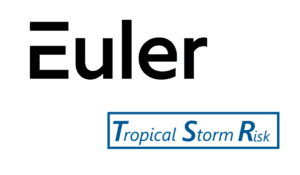How long does it take for whole life insurance to build cash value?
How long does it take for whole life insurance to build cash value?
You should expect at least 10 years to build up enough funds to tap into whole life insurance cash value. Talk to your financial advisor about the expected amount of time for your policy. Jul 28, 2021
Can you cash out a whole life insurance?
Generally, you can withdraw a limited amount of cash from your whole life insurance policy. In fact, a cash-value withdrawal up to your policy basis, which is the amount of premiums you’ve paid into the policy, is typically non-taxable. Jul 24, 2020
Do whole life policies increase in value?
Whole life insurance works as a permanent policy that builds cash value over time. As long as the premiums are current, the policy remains active for the entire life of the policyholder, and beneficiaries will receive a set death benefit upon the insured’s death. Mar 17, 2022
When should you cash out a whole life insurance policy?
Most advisors say policyholders should give their policy at least 10 to 15 years to grow before tapping into cash value for retirement income. Talk to your life insurance agent or financial advisor about whether this tactic is right for your situation.
What happens to cash value in whole life policy at death?
Whole life insurance is a type of permanent life insurance. When you pay your premium, part of the money goes toward the death benefit. The rest of the money goes into a savings account, making up your policy’s cash value. This cash value grows over time, and you may be able to access this amount during your lifetime. Nov 4, 2021
Whats better term or whole life?
Term life coverage is often the most affordable life insurance because it’s temporary and has no cash value. Whole life insurance premiums are much higher because the coverage lasts your lifetime, and the policy grows cash value. Oct 6, 2021
What does Suze Orman say about whole life insurance?
Suze believes that when whole or universal life insurance is looked at as a savings tool instead of just an insurance policy, the money that is contributed to a whole or universal life insurance policy could be earning a better rate of investment return elsewhere.
What’s the difference between term life and whole life insurance?
Term life insurance provides coverage for a set period of time, typically between 10 and 30 years, and is a simple and affordable option for many families. Whole life insurance lasts your entire lifetime and also comes with a cash value component that grows over time.
What is the death benefit of a whole life policy?
The death benefit of a life insurance policy represents the face amount that will be paid out on a tax-free basis to the policy beneficiary when the insured person dies. Therefore, if you were to buy a policy with a $1 million dollar death benefit, your beneficiary will receive $1 million upon your death.
What happens when a whole life insurance policy matures?
Typically for whole life plans, the policy is designed to endow at maturity of the contract, which means the cash value equals the death benefit. If the insured lives to the “Maturity Date,” the policy will pay the cash value amount in a lump sum to the owner.
What happens to whole life insurance at age 100?
The age 100 maturity date means the policy expires and coverage ends when the insured person turns 100. One possible result is that the policyholder (and their heirs) get nothing, despite decades of paying into the policy. But times change, and now people tend to live longer. Jan 12, 2021
Do you get money back if you cancel whole life insurance?
What happens when you cancel a life insurance policy? Generally, there are no penalties to be paid. If you have a whole life policy, you may receive a check for the cash value of the policy, but a term policy will not provide any significant payout. Sep 27, 2021
Can you convert whole life to term?
Changing whole life to term life If you’ve built up cash value within a whole life policy, you can ask your insurer if you can use the cash value to switch to a term life policy that’s paid up and end the whole life policy. Jul 17, 2020
Is whole life insurance taxable?
For starters, the death benefit from a whole life insurance policy is generally tax-free. But a whole life policy also features a cash value component that’s guaranteed to grow in a tax-advantaged way – it will never decline in value. As long as you leave the gain in your policy, you won’t owe taxes on it. Mar 22, 2020
What reasons will life insurance not pay?
If you die while committing a crime or participating in an illegal activity, the life insurance company can refuse to make a payment. For example, if you are killed while stealing a car, your beneficiary won’t be paid. Feb 18, 2022


